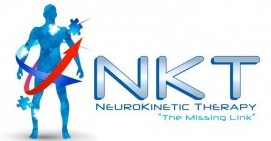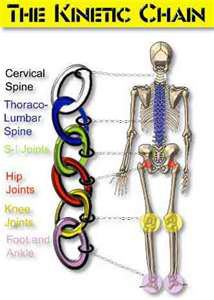 Your body has the remarkable ability to avoid painful areas and to keep moving regardless if its moving well. It creates a compensation pattern or a movement dysfunction to keep you functional.
Your body has the remarkable ability to avoid painful areas and to keep moving regardless if its moving well. It creates a compensation pattern or a movement dysfunction to keep you functional.
“You can’t recruit a muscle your brain can’t activate” Mara Nicandro NMT
Restore muscle function, the Missing Link
NeuroKinetic Therapy® is a neurobiomechanical method of assessment and corrective movement that addresses the causes of dysfunctional movement/coordination problems at their root in the motor control center in the cerebellum. Knowing how to reprogram the (MCC) allows the brain to access neural pathways that have been under utilized, causing imbalance and pain.
- NKT® utilizes muscle testing in order to rewire the Motor Control Center (MCC) in the Cerebellum. Basically, our brains learn to function by failure and repetition. When a muscle test ‘fails’ this opens up the MCC to learn a new pattern.
- NKT® allows the practitioner to reprogram the MCC by correcting the dysfunction. This is an amazing modality that will ONLY work if the client is ACTIVE in the therapy and recovery.
- NKT® requires you to be an active participant in your healing process. You will need to perform specific rehab exercises to ‘burn in’ the new functional pattern. This means you will move more efficiently and fluidly in the way that your body originally intended.
- What your appointment is like: Muscles that work together in a kinetic chain can compensate for each other and create dysfunctional movement patterns. Therefore to resolve the reactive pair we employ the NeuroKinetic Therapy® protocol, by using therapy localization, releasing the tight muscle, and finally retesting the weak muscle to make sure it is strong. When the NeuroKinetic Therapy® protocol is successful, you have reprogrammed the motor control center. This is how permanent rehabilitative change is made.
Testimonial: Totally crediting NKT® for my quick recovery from #DomeofStrength . My shoulders, particularly my left shoulder, were sore over the weekend but now feel the best they have ever been. Suzanne Ko of Skofit Chicago, 2014
Quote: It’s not the activity; it’s the lack of mobility and stability giving rise to the problem. Repetitive functional activities in a faulty base can cause overuse, compensation, postural changes and musculoskeletal imbalances.” -Gray Cook Functional Movement Systems
To learn how an effective treatment plan applying integrative proven techniques to restore muscle function is the smart choice for fast pain relief and long lasting results. Click on side button to schedule now.
Who can benefit from NKT®:

People find lasting relief from a wide array of muscular-skeletal problems such as:
- Back Pain
- Neck and Shoulder Pain
- Thoracic Outlet Syndrome
- Shoulder Impingement
- Carpel Tunnel
- Repetitive Strain
- Frozen Shoulder
- Knee Injuries
- Hip Pain
- Sciatica
- Elbow injuries
- Auto accidents – whip lash
- Plantar Fasciitis
- TMJ
Does NKT® enhance athletic performance and help to prevent injuries? A resounding, Yes! There is no doubt that NKT® can increase athletic performance, measurably reduce the chance of injury, and aid in the healing process if you are already injured. NKT® can give you the edge that may significantly increase your speed, stamina, strength, and accuracy when you need them most.
Example:
Do you know why you are stretching your hamstrings? Is it because they feel tight? Did you ever ask yourself why they are tight? Have you considered the possibility that they are tight for a good reason? Maybe they are tight because they are compensating for a nearby muscle like the glutes.
If you stretch a muscle that is compensating for another without fixing that relationship and strengthening the affected one, your stretching will soon be all for naught. You must retrain the motor control system in the brain to create permanent change.
So if you’re tired and frustrated with ineffective stretching, consider the NKT® approach of finding out why something is tight and then address the cause of the dysfunction.
Introduction to Neurokinetic Therapy
[schedule_now]
